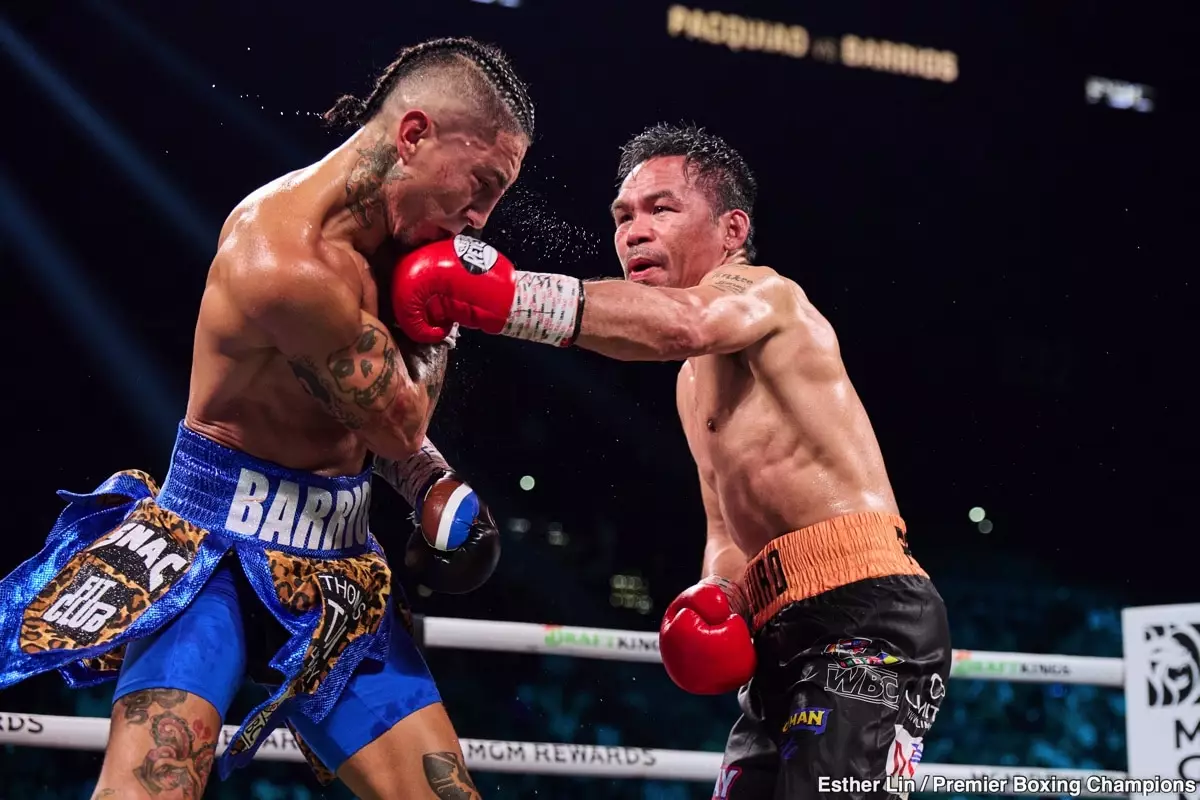In the landscape of contemporary boxing, where youth and flashy KO power often overshadow the seasoned champions, Manny Pacquiao’s recent performance stands out as a testament to enduring greatness. At 46 years old, many skeptics predicted his career would wind down with a series of losses or, worse, catastrophic injuries. Yet, Pacquiao defied these expectations, stepping into the ring with Mario Barrios and delivering a performance that reaffirms his status as one of boxing’s most tenacious warriors. His comeback isn’t merely about winning fights; it’s a profound statement about perseverance, skill, and the unyielding spirit of a true champion. Such resilience challenges the often ageist narrative that champions fade into obscurity, proving instead that experience, heart, and preparation can shine brighter than youthful exuberance.
Critical Insights Into Pacquiao’s Performance and Public Perception
Despite not officially securing the victory— a controversial draw that has sparked debate—Pacquiao’s display was undeniably impressive. His ability to control the ring, adapt during the fight, and absorb punishment without succumbing is reflective of a fighter who understands his craft at a profound level. Unfortunately, the boxing community and media often focus on the end result rather than the journey, leading to unfair dismissals of his performance. Critics have seized upon the official verdict, yet close observers recognize that Pacquiao’s skill and resilience far surpass what the scorecards suggest. Like many legendary athletes, Pacquiao’s true victory lies in inspiring fans and fellow competitors, showcasing that age is merely a number when passion and dedication are involved.
Who Deserves a Shot Next? The Debate Over Pacquiao’s Future Opponents
The conversation now shifts to Pacquiao’s next move, with potential opponents ranging from a rematch with Barrios to high-profile showdowns with fighters like Rolly Romero or even a lucrative trilogy clash with Floyd Mayweather. The choice of opponent isn’t just about the fight itself but about what message it sends about Pacquiao’s legacy and the direction of his career. Many fans and pundits agree that a rematch with Barrios isn’t a compelling option—mainly because of Barrios’s lackluster approach and Ronaldo Malignaggi’s harsh critique, labeling him as one of the worst champions he’s seen. Such rhetoric raises the question: is Barrios truly deserving of another payday against Pacquiao, or is this a fight that’s less about competition and more about padding records?
Assessing the Quality of Barrios and the Politics of Boxing Fight Selection
Mario Barrios entered the ring with the proclaimed “kill or be killed” mentality, but his approach was noticeably cautious, seemingly respecting Pacquiao’s legendary skills. His strategy—if it could be called that—resembled a sparring session more than a genuine challenge. Critics argue that Barrios lacked the aggression necessary to make the fight competitive otherwise, diminishing his credibility as a top-tier champion. This raises essential questions about the integrity of the matchmaking process—should fighters with questionable performances receive significant paydays? Is it fair to elevate fighters who fail to showcase true competitive spirit, or is winning enough to secure future opportunities? Malignaggi’s brutal assessment of Barrios as potentially the worst champion hints at a broader dissatisfaction with how boxing sometimes rewards mediocrity.
The Broader Implication: What Defines Greatness in Boxing?
Pacquiao’s performance underscores a vital reality about greatness: it’s not solely measured by titles or knockout ratios but by the ability to inspire, adapt, and endure against all odds. His career is an ongoing narrative about defying ageism, overcoming critics, and continuously pushing the boundaries of what’s possible in the ring. As boxing scrutiny becomes more intense, it is crucial to recognize that true champions are those who maintain integrity, exhibit resilience, and elevate the sport. Pacquiao’s journey challenges us to reconsider our expectations of aging athletes and the value of experience over raw physicality.
In the end, the debate isn’t just about who Pacquiao should fight next—it’s about recognizing a fighter who has already cemented a legacy rooted in heart, perseverance, and genuine greatness. For boxing fans and critics alike, the real story isn’t just about the upcoming bout but about the enduring spirit of a legend who continues to inspire.

